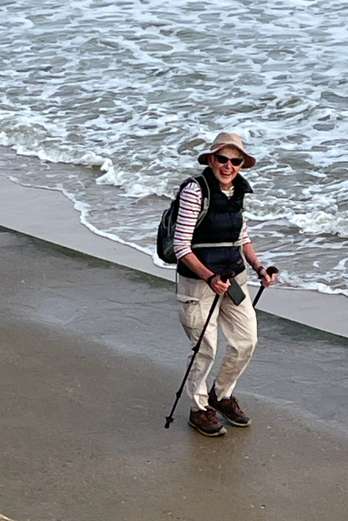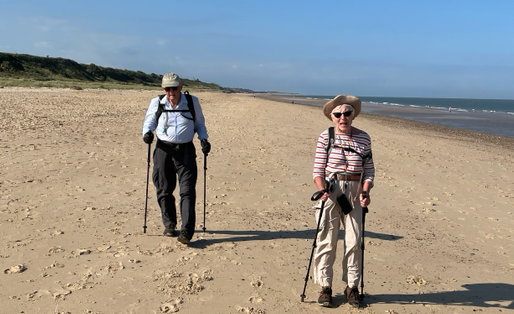We started walking down a road. I dislike and fear roads in equal measure. In fact, I have lost my nerve. Whatever care we take, there will always be some moron in a scarlet Mercedes wearing a reverse baseball hat, cutting a corner and giving us the finger. And look at the death of Stephen Chamberlain who died running near Cambridge a few weeks ago.
It’s astonishing that our river walks are wholly deserted. Here we live in overcrowded Britain, and there is no one to enjoy England’s Garden of Eden. I suppose as there are so many vast people barrelling along; each one thinks their podge is normal.
At a supper party last week, I sat opposite a man who sought to turn every conversation into a stupid joke. It made me wonder if he was an ass who couldn’t be serious or if he was a serious man trying to be funny. I found him a pain.
The Reverse Jive
This is how it works. Some 3 million Zimbabweans – economic migrants – have fled to South Africa. Every now and then, a few are arrested and sent back to Bulawayo.
Merrylouise, who works in a Jo’burg store, did the “Reverse Jive” a few weeks back. Her Zimbo accent gave her away to the local cops as an “illegal”. She packed a bag, and was then bussed, alongside others, 320 miles north to Beitbridge – the sole crossing between South Africa and Zimbabwe. Outside the arrival hall are stationed the Malaicha, slang for “we will carry you”. They immediately whizzed her and her pals back to Jo’burg.
The Reverse Jive took just 48 hours!
Go Figure
The economics are as plain as hunger. After decades of oppression and mismanagement, Zimbabwe governments collapsed the economy to a derisory GDP of £24bn, roughly the same as that of Derbyshire. South Africa’s economy is worth £320bn with plenty of jobs in the vast “informal sector”. If you were desperate for work, where would you rather be? Zimbabwe or South Africa?
Go figure. Millions of tough and deeply determined young people aren’t going to be put off by a bureaucracy, or being sent to Rwanda or being taken back to where they started – and who can blame them? Where there’s a will, the resilient and cunning will find a way – even if they must Reverse Jive to get there.
The numbers are staggering. Africa, right on the doorstep of the EU, has billions of poorly educated and unemployed young people with lousy prospects. Take Nigeria alone – between 2018 and 2020, some 20 million young people joined the throng of job seekers, yet only 3.5m new jobs were created.
Young people in dusty villages and urban slums across this vast continent may be poor but they still have access to smartphones – and they can see images of a land of milk and honey full of shiny cars. The UK’s GDP is approximately £2.274 trillion. Who can blame the most able and ambitious for wanting to grab some of it fast? Any number of “smugglers” will pave the way – a few are arrested while others appear to be like knotweed.
This is bound to turn ugly. Europe faces being overwhelmed by hundreds of millions of immigrants from fundamentally different cultures, all demanding attention and refusing to go away. Racial tensions will make the debates fraught. The welfare state will face collapse as these migrants are bound to be an economic drain. The UK needs highly skilled people but that’s not what we have coming down the track. Just imagine 50 boats arriving on the same day?
The issue was hardly touched upon during the recent election. But it’s vital that we stop playing the nice guy. We need to scrap our asylum system – created in an era before instant travel, smartphones and illegal boat people, and when the population of the world was a quarter of today’s – as unfit for purpose. And then bin the Refugee Convention and the ECHR – and any other law or treaty that stands in the way of the enforcement of our national borders.
To ignore this as scaremongering is to forecast an electoral uprising.
Reverse Jive anyone?


